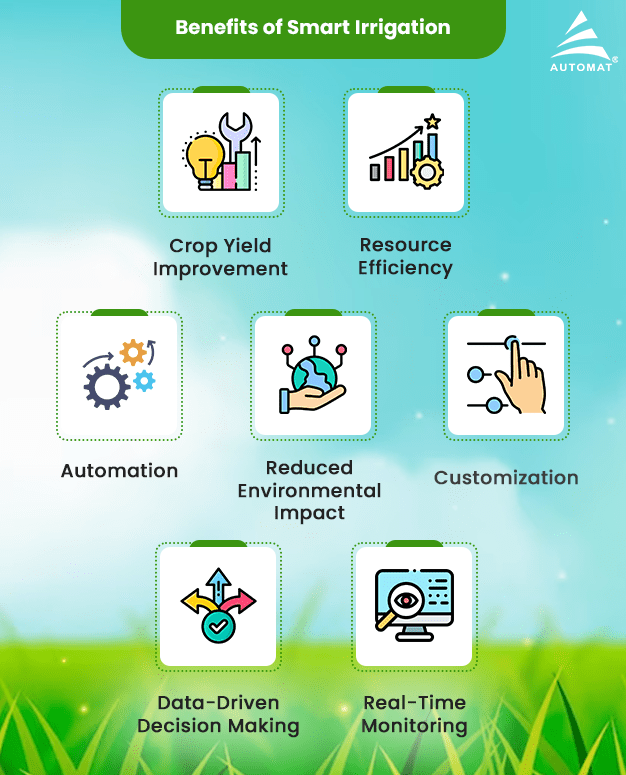
A smart fertigation system is an advanced agricultural technology that combines irrigation and fertilization processes in a precise and automated manner. It can significantly increase crop productivity by optimizing the application of fertilizers and water. Integrating technology in agriculture helps address the challenges of resource scarcity, environmental sustainability, and the increasing demand for food production.
Benefits of Smart Irrigation

The advantages of a smart fertigation system, are as follows:
1. Crop Yield Improvement
With optimized and precise nutrient delivery, consistent irrigation at the correct time, and enhanced monitoring, smart fertigation systems contribute to improved crop yields. This is particularly crucial in ensuring food security and economic viability for farmers.
2. Resource Efficiency
By integrating sensors and soil analytics, smart fertigation systems can assess the specific needs of crops based on factors such as soil moisture, nutrient levels, and weather conditions. This enables farmers to use resources more efficiently, reducing wastage of water and fertilizers.
3. Automation
Smart fertigation systems often come with automation capabilities, allowing farmers to set schedules for fertilization and irrigation based on real-time data and predefined parameters. This reduces the need for manual labour and ensures timely and consistent application.
Also Read: Benefits and cost implications of automation in irrigation
4. Real-time Monitoring
The system continuously monitors environmental conditions and adjusts the fertilization process in real-time. This adaptability helps crops receive nutrients when needed most, promoting healthier and more robust growth. Farmers can remotely monitor and control their fertigation equipment using smartphones or computers, ensuring seamless management even from a distance; this enables quick response to changing conditions, even if the farmer is not physically present on the farm.
5. Customization
Fertigation systems can be tailored to the specific requirements of different crops and soil types. This level of customization ensures that each crop receives the optimal blend of nutrients for its growth stage.
6. Data-driven Decision Making
The collection and analysis of data from the smart fertigation system provide valuable insights into crop performance, nutrient levels, and environmental conditions. Farmers can make informed decisions based on this data to further enhance productivity.
7. Reduced Environmental Impact
Precision application reduces the risk of nutrient runoff, minimizing the environmental impact of fertilization. This benefits the immediate surroundings and contributes to sustainable agricultural practices.
Conclusion
In summary, a smart fertigation system emerges as the cornerstone of modern agriculture, seamlessly integrating irrigation management with precision fertilization. According to the Allied Market Research, the global smart irrigation market size was valued at $1.44 billion in 2020, and is projected to reach $5.57 billion by 2030.
By harnessing the power of technology, farmers can maximize productivity, reduce waste, and make data-driven decisions.




